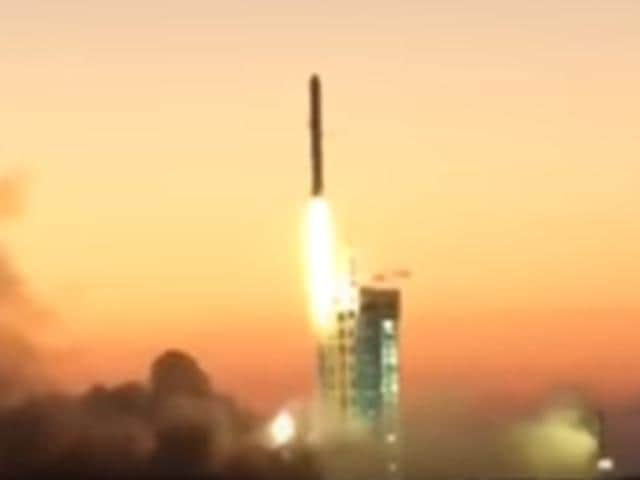China launches Wukong satellite to seek evidence of dark matter decay
The DAMPE satellite, nicknamed “Wukong” after the Monkey King with penetrating eyes in the Chinese classical fiction “Journey to the West”, blasted off on Thursday morning on a Long March 2-D rocket from the Jiuquan Satellite Launch Centre in Gansu province
China on Thursday launched its first Dark Matter Particle Explorer (DAMPE) satellite in a fresh search for smoking-gun signals of the invisible material that scientists believe makes up most of the universe’s mass.

The DAMPE satellite, nicknamed “Wukong” after the Monkey King with penetrating eyes in the Chinese classical fiction “Journey to the West”, blasted off on Thursday morning on a Long March 2-D rocket from the Jiuquan Satellite Launch Centre in Gansu province, Xinhua news agency reported.
It will enter a sun-synchronous orbit at a height of 500km to observe the direction, energy and electric charge of high-energy particles in space.
From there, scientists hope the 1.9-tonne desk-sized satellite could help lift the “invisible cloak” on the dark matter and shine more light on the hypothetical mass.
With the new DAMPE satellite, scientists will look for evidences of dark matter annihilation or decay.
Wukong will scan the space in all directions in the first two years and focus on sections where dark matter are most likely to be observed afterwards.
More than 100 scientists will study the data sent back by Wukong. Initial findings are expected to be published in the second half of 2016.
Dark matter, which does not emit or reflect enough electromagnetic radiation to be observed directly, is one of the huge mysteries of modern science.
Theorised by scientists who could not understand missing mass and strangely bent light in faraway galaxies, dark matter has become widely accepted in the physics community even though its existence has never been concretely proven.
Scientists now believe only around five percent of the total mass-energy of the known universe are made up of ordinary matter, whereas dark matter and dark energy make up the rest.
Knowing more about dark matter could hence give humanity a clearer idea about the past as well as future of galaxies and the universe, and will be revolutionary for the world of physics and space science.



